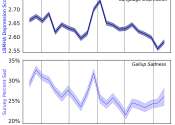At the time of the creation of the World Health Organization (WHO), in 1948, Health was defined as being "a state of complete physical, mental, and social well-being and not merely the absence of disease or infirmity".
This definition invited nations to expand the conceptual framework of their health systems beyond issues related to the physical condition of individuals and their diseases, and it motivated us to focus our attention on what we now call social determinants of health. Consequently, WHO challenged political, academic, community, and professional organisations devoted to improving or preserving health to make the scope of their work explicit, including their rationale for allocating resources. This opened the door for public accountability [3].
Only a handful of publications have focused specifically on the definition of health and its evolution in the first 6 decades. Some of them highlight its lack of operational value and the problem created by use of the word "complete." Others declare the definition, which has not been modified since 1948, "simply a bad one." [4]. More recently, Smith suggested that it is "a ludicrous definition that would leave most of us unhealthy most of the time." [5].
In 1986, the WHO, in the Ottawa Charter for Health Promotion, said that health is "a resource for everyday life, not the objective of living. Health is a positive concept emphasizing social and personal resources, as well as physical capacities." Classification systems such as the WHO Family of International Classifications (WHO-FIC), which is composed of the International Classification of Functioning, Disability, and Health (ICF) and the International Classification of Diseases (ICD) also define health.
Overall health is achieved through a combination of physical, mental, emotional, and social well-being, which, together is commonly referred to as the Health Triangle.









